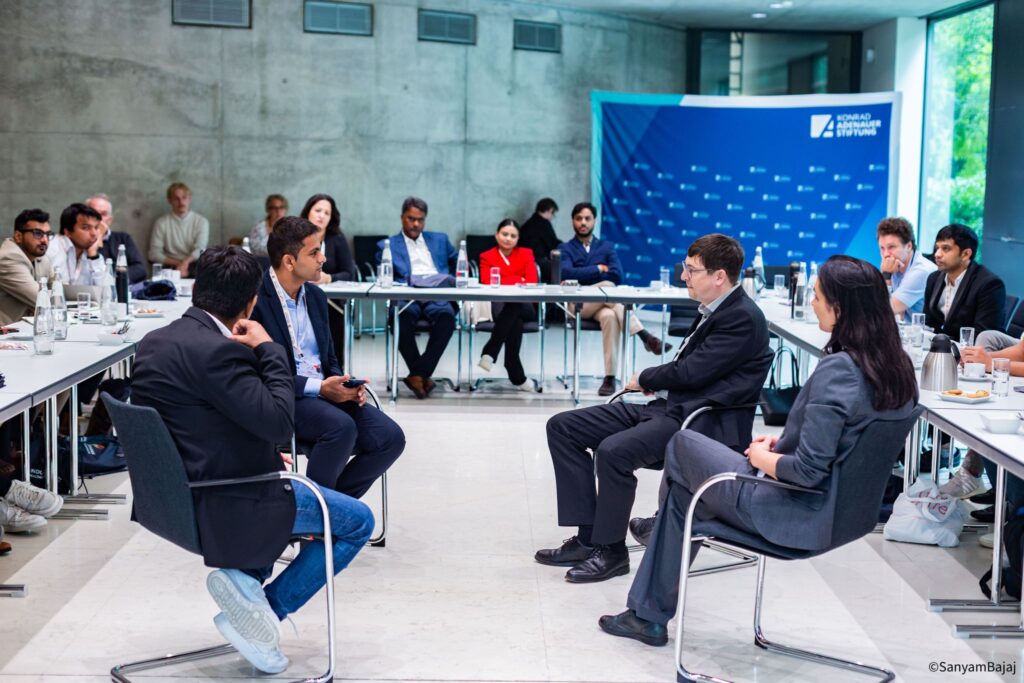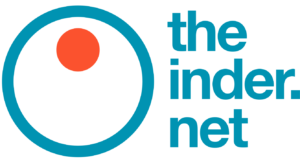
From July 17 to 19, 2025, the Indo-German Healthcare Congress (IGHC) took place in Berlin — an initiative of the Indo-German Young Leaders Forum (IGYLF). The three-day congress brought together professionals from medicine, nursing, policy-making, academia, and the healthcare industry from both countries, with a clear objective: to jointly develop actionable approaches to some of the most pressing healthcare challenges — particularly in the areas of workforce shortages, digital transformation, system resilience, and global cooperation.
Health Workforce Migration: Regulated, Qualified, Collaborative
The first day of the event focused on how Germany and India can jointly respond to the growing demand for healthcare professionals. At the Indian Embassy, representatives from both countries discussed regulatory hurdles, quality assurance, and fair recruitment practices.
Thomas Heim (German Federal Ministry of Labour and Social Affairs) and Henning Haab (Federal Ministry of Health) outlined the current policy framework and advocated for coherent strategies across labor, health, and education policies. Legal advisor Marc Schreiner (German Hospital Federation) emphasized the urgency of digital recognition and recruitment pathways. Indian entrepreneur Avinav Nigam (TERN Group) presented a fee-free placement model that protects healthcare professionals from exploitative structures. Pia Türk (Charité) shared practical insights into the integration of international nursing staff in clinical settings.
Key demands included: accelerated recognition of Indian qualifications, standardized upskilling programs, and the establishment of state-regulated and transparent mobility structures. The goal: long-term, sustainable, and fair migration in the healthcare sector — to the mutual benefit of both countries.
Innovation and AI: Connected Systems for Future-Ready Healthcare
Day two, hosted at the Konrad Adenauer Foundation, focused on digital transformation in healthcare. Prof. Dr. Günther Jonitz opened with a keynote highlighting the need for systemic connectivity while upholding ethical standards. Dr. Satya Prakash Dash referred to India’s so-called “bio-renaissance”, which is generating globally scalable health-tech innovations.
Michael Huebner presented tangible digitalization initiatives in German hospitals, emphasizing open interfaces for start-up collaboration. In the panel discussion “AI in Healthcare,” Dr. Mark Klemens, Dr. Angeli Möller, and Dr. Ankit Singh – moderated by Dr. Jubin Shah – debated the potential and limitations of AI in diagnostics and care. The consensus: clinical validation, data protection, and ethical standards must be integral to any technological implementation.
Dr. Julia Fitzner (WHO) illustrated how agile data systems enable life-saving decisions in public health crises, while Melanie McElroy (Techniker Krankenkasse) underscored the role of health insurers in scaling digital solutions.
Healthcare Access, Women’s Health, and System Resilience
The third day, held on the Charité Campus, addressed questions of equitable access and resilient health systems. Dr. Paul Rostin demonstrated how multilingual digital tools empower patients to actively participate in treatment processes. Dr. Tina Ghelani moderated a panel on women’s health across the life course – with a particular focus on hormonal changes and existing care gaps.
Dr. Dorothea Portius presented evidence-based strategies for precision nutrition in menopause therapy. Prof. Dr. Varsha Tanu advocated for climate-resilient health systems that proactively protect vulnerable populations. Dr. Tharshika Thavayogarajah emphasized that leadership diversity demonstrably improves healthcare outcomes – a structural priority for both countries.
A thematic bridge was built through discussions on integrative medicine. Dr. Christian Garbe explored how evidence-based Ayurvedic concepts can be integrated into Western healthcare delivery. Sanjay Srivastava (DSRRAU, Jodhpur) highlighted Ayurveda’s role in building resilient public health strategies in a post-pandemic context.
Dr. Oliver Lester Saldanha concluded the day by presenting „Swarm Learning“ – a collaborative model for data-driven analysis with strong privacy protections. It exemplified how trust and technology can go hand in hand.
Driving Joint Solutions
This bilateral expert congress was defined by solution-oriented dialogue, concrete project proposals, and a mutual readiness to act. The Indo-German healthcare partnership continues to prove complementary: Germany provides structural capacities and regulatory frameworks, while India contributes technological innovation and a growing pool of well-trained healthcare professionals.
Going forward, cross-sectoral platforms will be essential to launch joint pilot initiatives, streamline regulatory processes, and build mutually compatible digital infrastructures. IGHC 2025 has laid vital groundwork – but these impulses must now be followed by implementation, not merely declarations.








